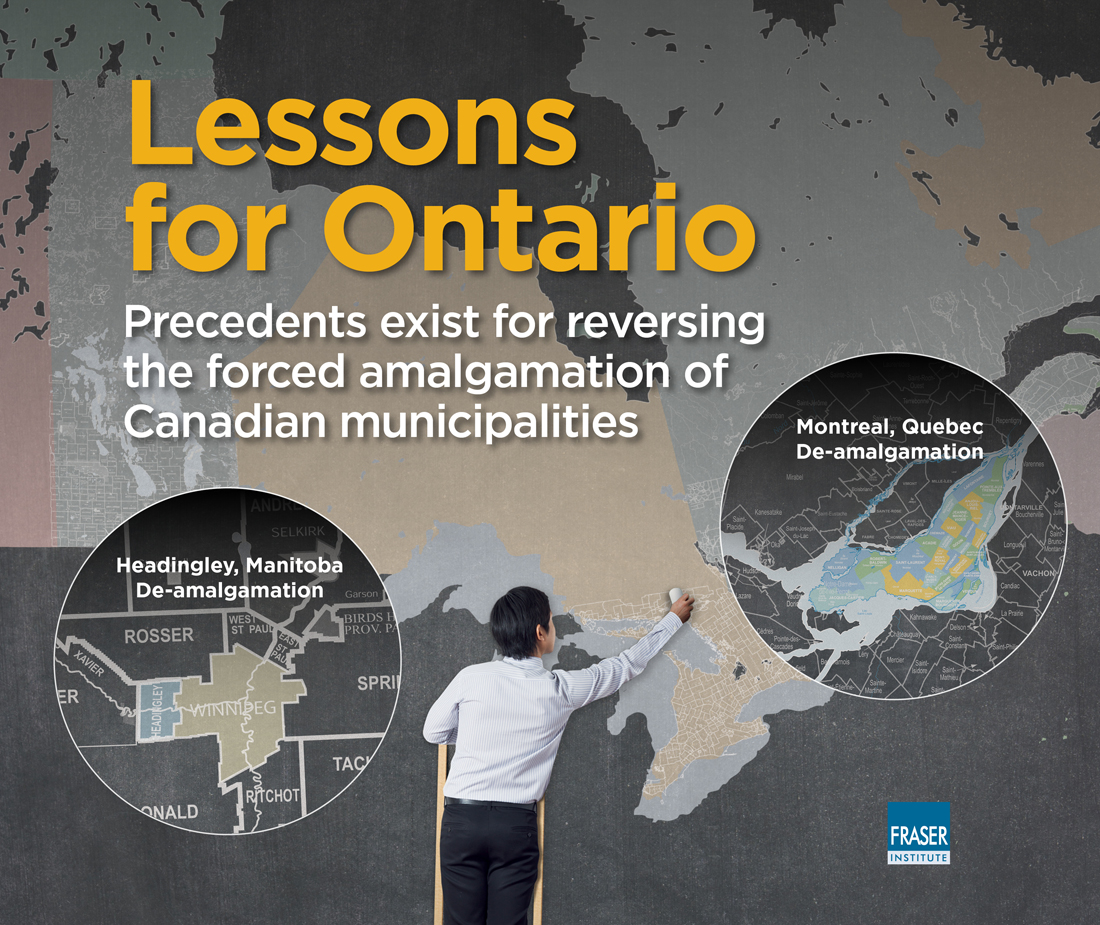Study
| EST. READ TIME 1 MIN.Precedents exist for reversing the forced amalgamation of Canadian municipalities
Although nearly every province in Canada has pursued some form of local restructuring over the past 25 years, municipal amalgamation remains a controversial subject. A vast amount of research has found that consolidation fails to produce promised cost savings, rarely leads to more efficient service delivery, and reduces the ability of citizens to be involved in the life of their local governments. It is no surprise then, that local restructuring proposals have often been met with stiff resistance from local residents. What happens once the die has been cast, however? Is it possible to reverse a municipal amalgamation? If so, is it even desirable to do so? This paper delves into these questions and examines two cases of municipal de-amalgamation: Montreal and Headingley, which seceded from Winnipeg. It examines the fiscal and governance implications of both de-amalgamations and provides a set of criteria to evaluate a proposed de-amalgamation of a consolidated local government. Overall, we find no reason that de-amalgamation cannot be pursued, but we argue that is not often desirable. In fact, if not done right, it is very possible to further complicate the governance of a region and distract from much more important conversations about regional policy integration and planning.

Share
-

Lydia Miljan
Professor of Political Science, University of WindsorLydia Miljan is a Professor of Political Science at the University of Windsor, and a Senior Fellow of the FraserInstitute. She was Director of the Fraser Institute’s Alberta Policy Research Centre and from 1988 to 2001 was the Chair of the National Media Archive. She holds a Ph.D. in Political Science from the University of Calgary, specializing in political communication. Dr. Miljan teaches in the areas of Canadian public policy, research methodology, and politics and the media. Her main research interests include how journalist’s personal views are reflected in news content and public opinion formation. In addition to peer-reviewed papers, she is the author of three books: Public Policy in Canada, Hidden Agendas: How Journalists Influence the News, and Cross-Media Ownership and Democratic Practice in Canada. Hidden Agendas was short-listed for the Donner Prize for the best book in public policy, 2003/04.… Read more Read Less… -

Zachary Spicer
SSHRC Post-Doctoral Fellow, Laurier InstituteZachary Spicer is a SSHRC Post-Doctoral Fellow with the Laurier Institute for the Study of Public Opinion and Policy atWilfrid Laurier University. He received his Ph.D. in 2013 from the Department of Political Science at the University of Western Ontario. In 2013/14, he held a post-doctoral fellowship with the Institute on Municipal Finance and Governance at the University of Toronto’s Munk School of Global Affairs. His research has appeared in a variety of academic journals, including Canadian Public Administration, Canadian Public Policy, and the Journal of Urban Affairs.… Read more Read Less…
Related Topics
Related Articles
By: Steven Globerman
By: Livio Di Matteo
By: Jock Finlayson
By: Steven Globerman